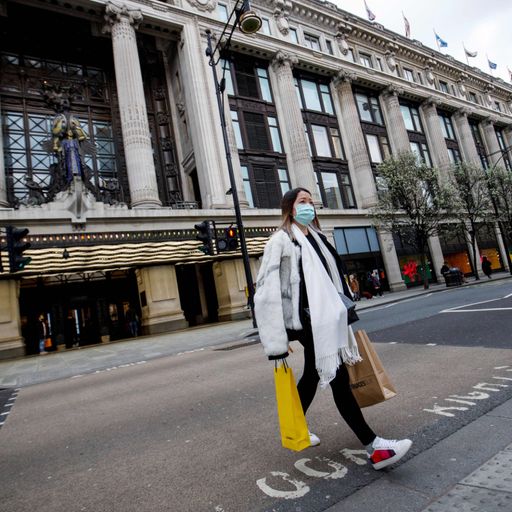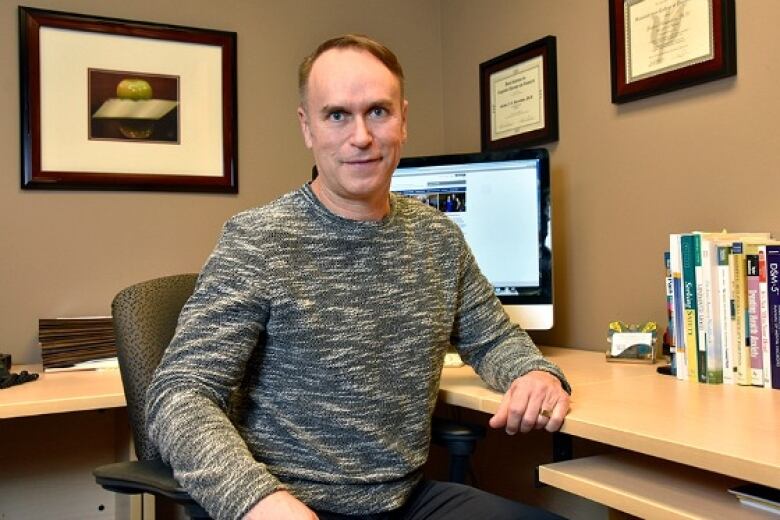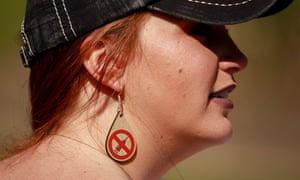Coronavirus isn't shaking some prominent anti-vaxxers from their beliefs, expert says
The world's top tennis player, Novak Djokovic, said he may not return to the sport if he's required to take a COVID-19 vaccine

Novak Djokovic of Serbia plays a backhand during his singles final against Alexander Zverev of Germany during Day Eight of the Nitto ATP Finals at The O2 Arena on November 18, 2018 in London, England.Clive Brunskill/Getty Images
National Post Staff April 21, 2020
Despite more than 170,000 dead and nearly 2.5 million infected people around the world, the coronavirus pandemic has hardened some anti-vaxxers’ beliefs while others are wavering.
The world’s top tennis player, Novak Djokovic, said he may not return to the sport if he’s required to take a vaccine.
There are 70 candidate vaccines currently under study, the World Health Organization states, with three in clinical evaluation.
“Personally I am opposed to vaccination and I wouldn’t want to be forced by someone to take a vaccine in order to be able to travel,” Djokovic said in a Facebook livestream with several fellow Serbian athletes on Sunday. “But if it becomes compulsory, what will happen? I will have to make a decision.”
He went on, “Hypothetically, if the season was to resume in July, August or September, though unlikely, I understand that a vaccine will become a requirement straight after we are out of strict quarantine and there is no vaccine yet.
The steadfast “extremists” are capitalizing on the growing COVID-19 pandemic, Heidi Larson, director of the London-based Vaccine Confidence Project, told The Guardian. “The belief-driven groups who reject vaccination on principle, whose aim is to disrupt and polarize, they’re not changing,” Larson said.
Prominent anti-vaxxer Robert F. Kennedy Jr., the son of the former senator, has amplified misinformation that Bill Gates had a role in creating the COVID-19 pandemic in order to profit from it. Gates, one of the richest men in the world with a net worth of more than $100 billion, has a philanthropic foundation that largely helps deliver healthcare and vaccines to developing countries.
Throughout the pandemic, Gates has written op-eds, posted on Reddit forums and appeared on TV, calling for expanded public health measures, vaccine development and increased testing, the New York Times reported.
On his Instagram, Kennedy frequently attacks Gates, claiming the billionaire intends to control the world and surveil the population through his funding and support for a coronavirus vaccine.
However, there was evidence that people who were “less sure for some reason, who maybe have issues with just one particular vaccine – the MMR jab for their children, for example – may behave differently in the context of this pandemic,” Larson said.
Haley Searcy, a 26-year-old mother from Florida told CNN, she was “fully anti-vax” when her daughter was born last year but the COVID-19 pandemic has changed her beliefs.
“Since COVID-19, I’ve seen firsthand what these diseases can do when they’re not being fought with vaccines,” she said. Before the virus hit, she feared her child dying from Sudden Infant Death Syndrome due to vaccines — a scientifically unfounded claim pushed by anti-vaxxers.
“My mother has a lung disease, so if she gets COVID-19 there is no fighting it. I learned as much as I could to speak out against misinformation in the hopes that I could convince more people to stay home and follow social distancing so that she won’t get sick,” she said.
“So many lives are at stake, including people I care about who are very vulnerable.”
The Vaccine Confidence Project launched an 18-month study with local partners around the world, conducting polls and analyze online conversations about COVID-19 to measure people’s attitudes towards a future vaccine.
Larson told The Guardian that after analyzing more than three million social media posts a day from January to March, she was certain that a vast majority of people were “eager for a coronavirus vaccine and as soon as possible.”
Though, there will be resistance, as the anti-vaccination movement has grown globally in large part due to a widely discredited paper by British doctor Andrew Wakefield. The disgraced doctor claimed there was a link between autism in children and the measles, mumps and rubella (MMR) vaccine.
ROBERT F KENNEDY JR. INSTAGRAM

"A New York Times reporter asked me yesterday about the conspiracy theory that #BillGates is developing injectable chip to store vaccine records. Here are the factsThe Bill and Melinda #GatesFoundation invested more than $21 million to perfect a microneedle technology that embeds, under the skin, a vaccination record visible by infrared light that can be read by a minimally-adopted smartphone technology.\u201d The technology will allow health officials to scan U.S. citizens to detect their vaccination compliance.A study funded by the Bill and Melinda #Gates Foundation and published in December 2019 by researchers from MIT, the Institute of Chemistry of the Chinese Academy of Sciences, and the Gates-funded Intellectual Ventures Laboratory in Bellevue, WA, describes how near-infrared quantum dots will be implanted under the skin along with a vaccine to encode information for decentralized data storage and bio-sensing.Gates technology uses a tattoo-like mechanism to inject invisible nanoparticles subcutaneously. Gates researchers are now testing the implant with a vaccine against the #COVID-19 virus.\n\nThe Gates-funded report boasts that the chip system will allow house-to-house compliance searches to be conducted by government enforcement teams with minimal training, and will open up new avenues for decentralized data storage and biosensing. The #MIT paper is titled Biocompatible near-infrared quantum dots delivered to the skin by microneedle patches to record vaccination.Gates began funding implantable tracking chips and ratio biotechnology in 2011 with a grant to TransDerm Inc. Gates is currently making multiple investments to develop different versions, including grants to Vaxxas Pty Ltd, Micron Biomedical Inc, Georgia Institute of Technology, and Vaxess Technologies Inc.I urge you to contact Bill Gates on his social media. Gently explain that tagging and tracking humans may appeal to his government cronies in totalitarian China, but those activities are inconsistent with American values and traditions."


 I
I














